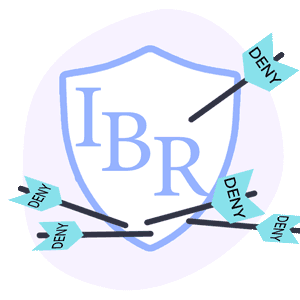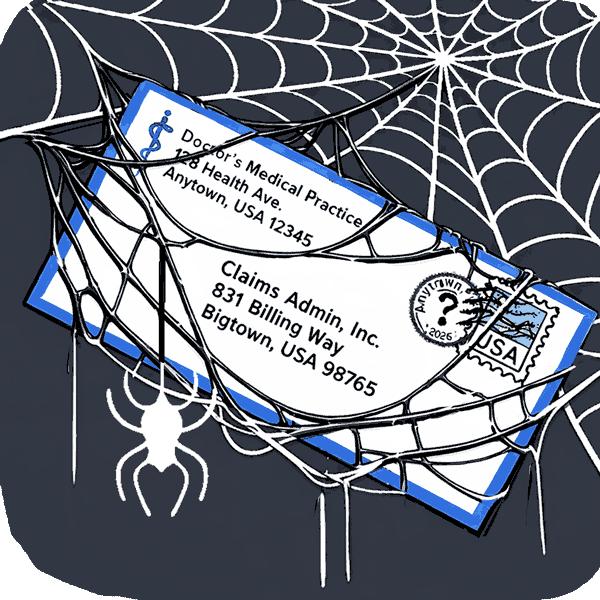2022 Non-Compliance Report: 6 Admins That Fail to Send e-EORs

California workers’ comp switched to electronic billing for very good reasons.
e-Billing is much, much faster, wastes far fewer resources, and goes a very long way towards making treating injured workers financially sustainable for providers, by allowing practices to more easily track and manage revenue.
But e-billing could — and should — work even better. The problem? Some claims administrators fail, at unacceptable rates, to comply with California’s e-billing mandates.
One of the most important mandates is the requirement that claims administrators return electronic Explanations of Review (e-EORs) in response to providers’ bills. e-EORs automatically post to the e-bill sent by the provider, instantly closing the payment loop and drastically reducing the time and effort required to keep track of revenue.
Below, we list 6 claims administrators with troubling rates of e-EOR non-compliance in 2022 so far, as reflected by daisyBill data.
2022 Low e-EOR Compliance Rates by Claims Administrator
The table below lists the monthly percentage of missing e-EORs from January to October 2022. daisyBill will be filing Audit Complaints with the California Division of Workers’ Compensation (DWC) to report this EDI non-compliance.
Claims Administrator |
Submission Total |
835 Missing Total |
Jan |
Feb |
Mar |
Apr |
May |
Jun |
Jul |
Aug |
Sep |
Oct |
ESIS, Inc. |
42,066 |
13,166 |
29% |
32% |
32% |
33% |
35% |
34% |
33% |
31% |
31% |
24% |
Sempra Energy Employee Care Services |
2,227 |
418 |
20% |
31% |
13% |
14% |
20% |
22% |
20% |
19% |
18% |
11% |
Los Angeles County Metropolitan Transit Authority (CA) |
15,398 |
2,762 |
17% |
24% |
18% |
17% |
22% |
19% |
18% |
23% |
10% |
13% |
Next Level Administrators |
10,979 |
1,315 |
10% |
13% |
17% |
16% |
16% |
20% |
18% |
8% |
1% |
3% |
City of Los Angeles Department of Water and Power (CA) |
2,009 |
127 |
21% |
9% |
4% |
4% |
3% |
2% |
4% |
3% |
2% |
17% |
Adminsure, Inc. |
16,203 |
781 |
4% |
7% |
11% |
6% |
4% |
4% |
3% |
3% |
4% |
4% |
The claims administrators above are, to varying degrees, violating California regulations in a way that does genuine financial harm to medical practices.
Imagine, as a provider who uses e-billing for quicker and easier revenue management, to not receive e-EORs for a quarter or a third of e-bills submitted (looking at you, ESIS). Providers pay for e-billing software, and for staff who know how to use it, only to be rewarded with paper EORs snail-mailed to the office, requiring further person-hours to post — all in violation of state law.
Timely sending an electronic EOR is not optional in California. California Labor Code (LAB) Section 4603.4 mandates the DWC Administrative Director (AD) “adopt rules and regulations” to:
“(c) Require all employers to accept electronic claims for payment of medical services. [emphasis added]”
Further, Section 7.1 of the DWC Medical Billing and Payment Guide states:
“…the ASC X12N/005010X221 A1 Health Care Claim Payment/Advice (835) must be transmitted to the provider within 15 working days of receipt of the electronic bill…[emphasis added]”
“...payment for uncontested medical treatment…shall be made by the claims administrator within 15 working days after electronic receipt of an itemized electronic billing…[emphasis added]”
Providers contend with enough assaults on their bottom line, from downcoding, to pernicious Preferred Provider Organization (PPO) contracts, to unwarranted denials based on Medical Provider Networks (MPNs), and more.
The immense struggle to simply be paid, on time and at fee schedule rates, is made easier and less costly by e-billing. But when California fails to enforce e-billing rules, providers suffer yet another breach, another hole in the revenue bucket caused by the consequence-free environment claims administrators enjoy.
How long can we expect providers to put up with this?
daisyBill tracks responses to your bills, appeals, and RFAs — so your practice knows when payers break the rules. Click below to learn more, or request a demonstration.
LEARN MORE
DaisyBill provides content as an insightful service to its readers and clients. It does not offer legal advice and cannot guarantee the accuracy or suitability of its content for a particular purpose.






